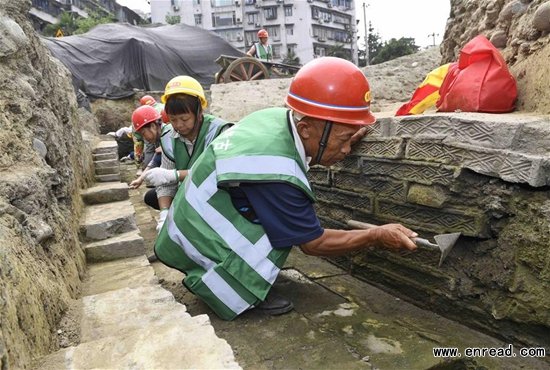Archaeologists have spent months excavating1 a lost temple that disappeared for nearly a millennium2 in downtown Chengdu, capital of southwest China's Sichuan Province.
考古学家在四川成都耗费数月时间挖掘出一座消失的庙宇,这座庙宇在成都市区消失了将近一千年。
The Fugan Temple was a famous temple that lasted from the Eastern Jin Dynasty (317-420) to the Southern Song Dynasty (1127-1279).
Daoxuan, a famous Tang Dynasty (618-907)
monk3, once wrote that an official
rite4 to pray for rain to end a
persistent5 drought was held in front of the temple, and it rained as if the prayers had been heard in heaven.
The story was the record of how the temple got its name, Fugan, which means "perceive the
blessing6."
Famous Tang Dynasty poet Liu Yuxi left a poem to
commemorate7 the temple's
renovation8, describing its heavenly appearance. The poem further
noted9 the temple's important role at that time.
However, the building was worn down during the later period of the Tang and Song dynasties, with all traces of the temple disappearing during wars.
"We have only
excavated16 a part of the temple's area, but already have a glimpse of its past glory," said Yi Li, who led the
excavation17 project.

 收听单词发音
收听单词发音 


